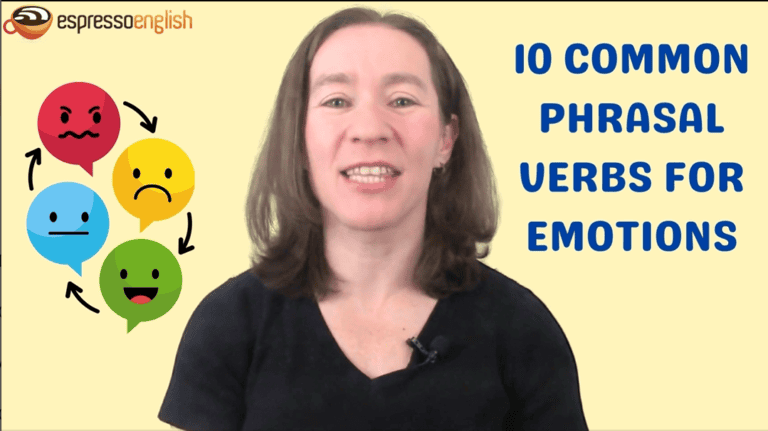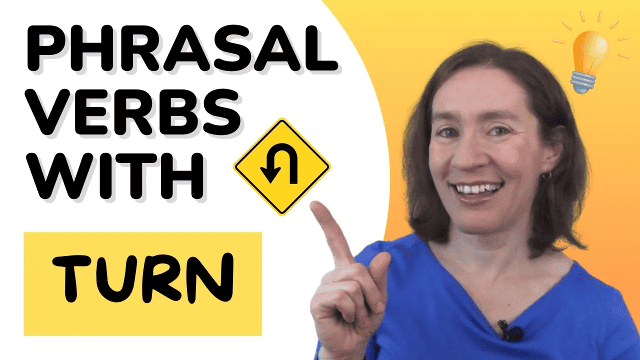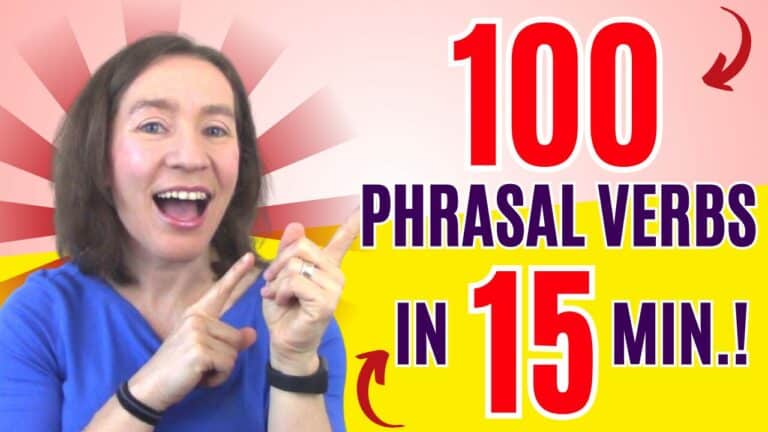
Today we’re going to learn 10 phrasal verbs all with the word “come.” and I’ll give you an example sentence for each one to show you how it’s used in English.
It’s even easier to learn phrasal verbs when you can see them in the full context of a conversation! My Phrasal Verbs in Conversation Course will teach you phrasal verbs through dialogues on all sorts of everyday topics. It’s a simple, easy, and natural way to learn more than 500 common phrasal verbs in English. Click on the link to learn more and sign up.
#1 – come across
= find something by accident
When I was cleaning my room, I came across my middle-school diaries.
#2 – come along
= accompany someone when going somewhere
We’re going to get ice cream. Want to come along?
#3 – come back
= return
He’s still hoping his ex-girlfriend will come back to him, even after all these years.
#4 – come off
= when something becomes separated or unstuck from another thing
The paint is starting to come off the wall in the kitchen.
#5 – Come on!
The phrasal verb come on has multiple uses, but when used as an exclamation, it can be encouragement for someone to do something, or it can mean something like “Stop being ridiculous!”
“I don’t want to dance. I’m no good at it; everyone will laugh at me.”
“Oh, come on! Nobody here cares whether or not you can dance.”
#6 – come out
= appear or leave the inside of a place
It’s cloudy right now, but the sun should come out later.
My little brother is hiding under the covers and doesn’t want to come out.
#7 – come over
= come to someone’s house
If you come over tomorrow after school, I’ll help you with your homework.
#8 – come through
= produce or deliver a result
I thought my favorite basketball team would lose the game, but the offense came through and scored 15 points in the last five minutes.
#9 – come up
= appear. Often used for when a task/responsibility appears unexpectedly, or when a topic appears in a discussion.
I’m sorry I missed your birthday party. Something came up at the last minute, and I couldn’t go.
I thought someone would mention the policy change, but it didn’t come up during the meeting.
#10 – come up with
= create or invent something
Every time I ask him to do something, he always comes up with a list of excuses for why he can’t do it.

I challenge you to try writing your own sentences with each of these phrasal verbs – because when you use them yourself, that’s when you really start to remember them better so that they will come out naturally – they’ll appear naturally – when you speak English.
Inside my Phrasal Verbs in Conversation Course, each lesson includes questions that help you use the phrasal verbs yourself, and you can send in your sentences for correction and feedback from the Espresso English teaching team – to be sure you’re using them right.
Don’t give up on phrasal verbs – you can learn them successfully, and my course can definitely help you with that.
Image sources: PrimaryTreasure, HDwallpaperstock, Appszoom, Bankrate.com
















